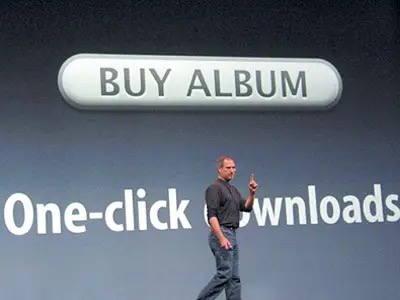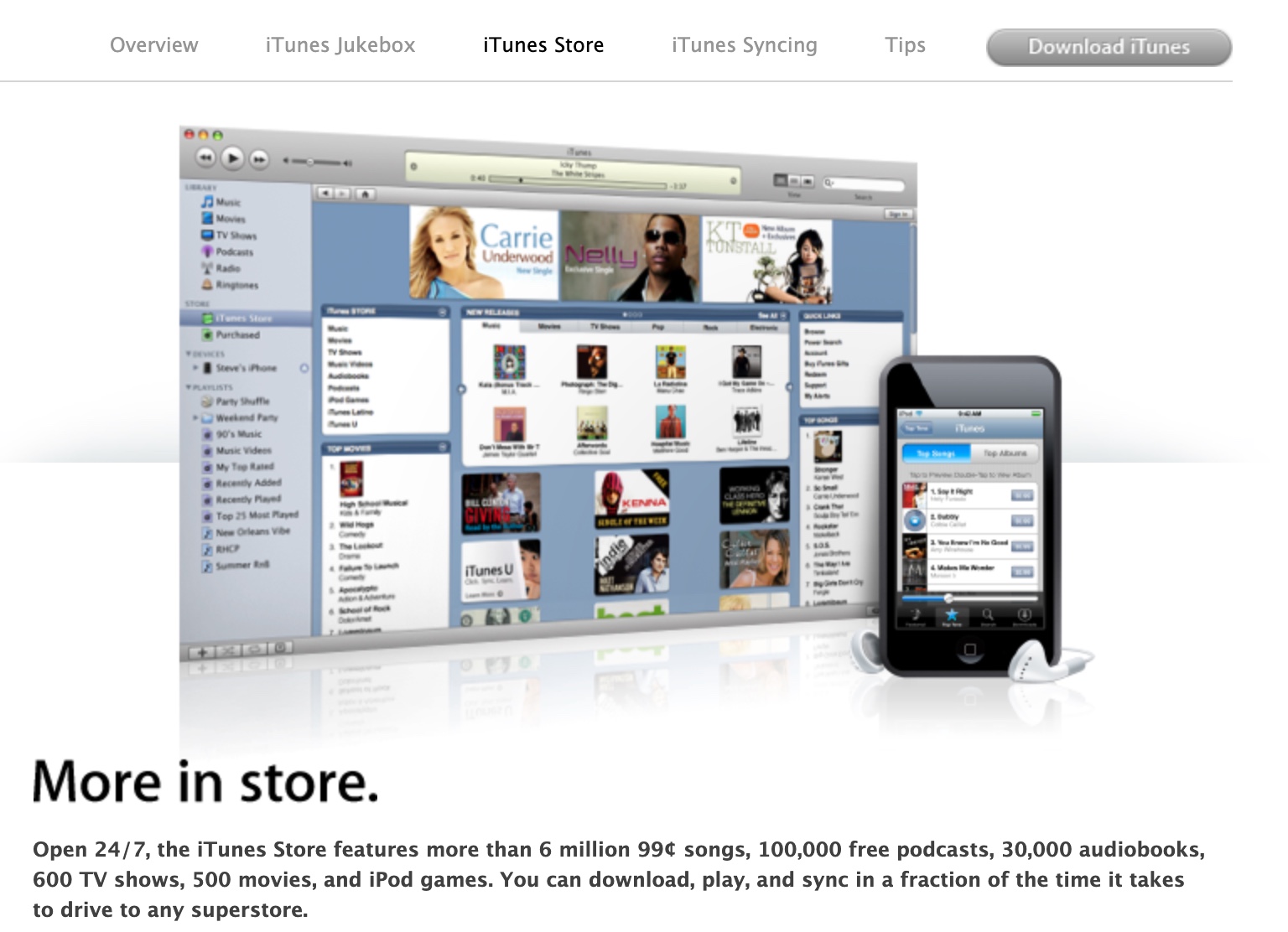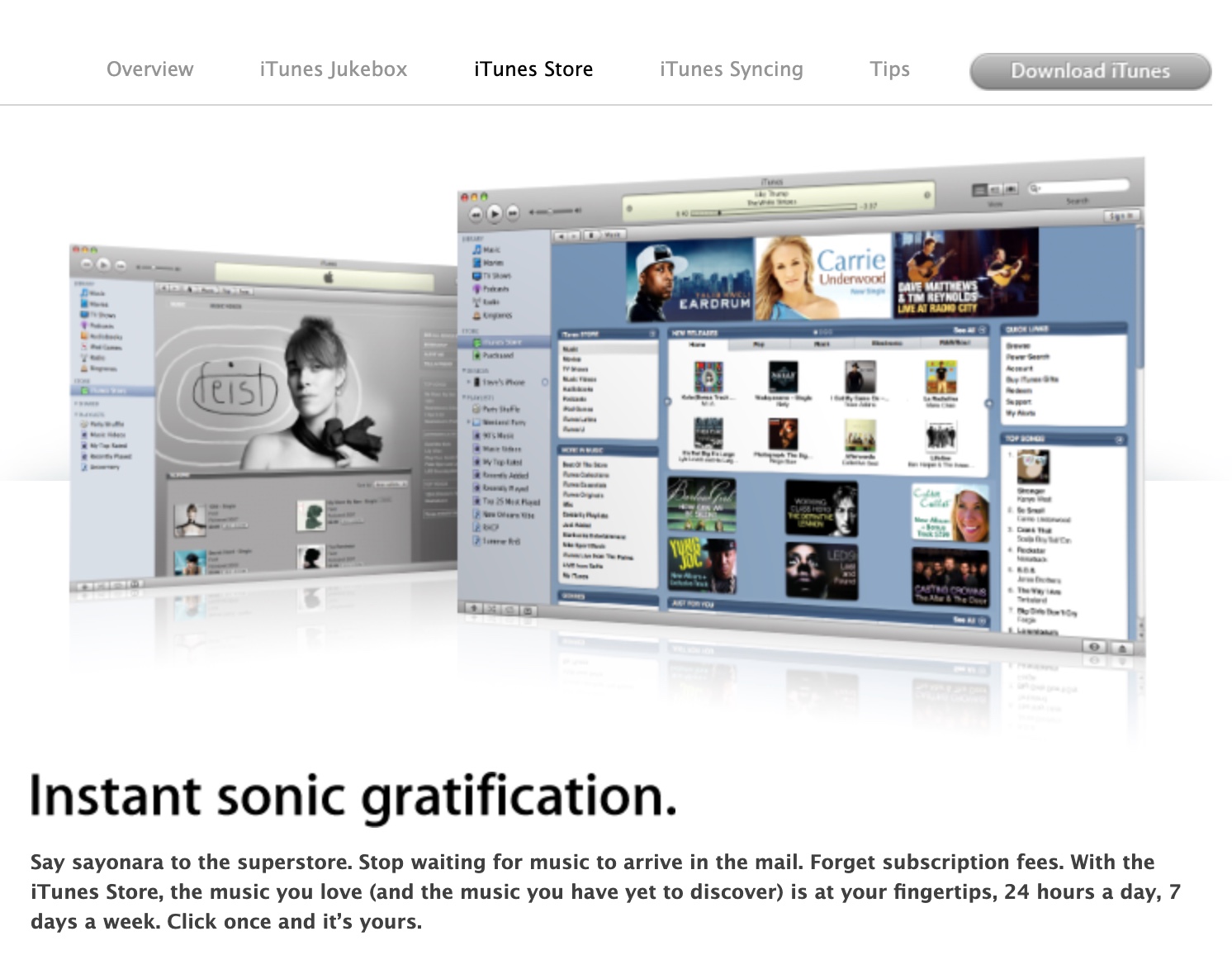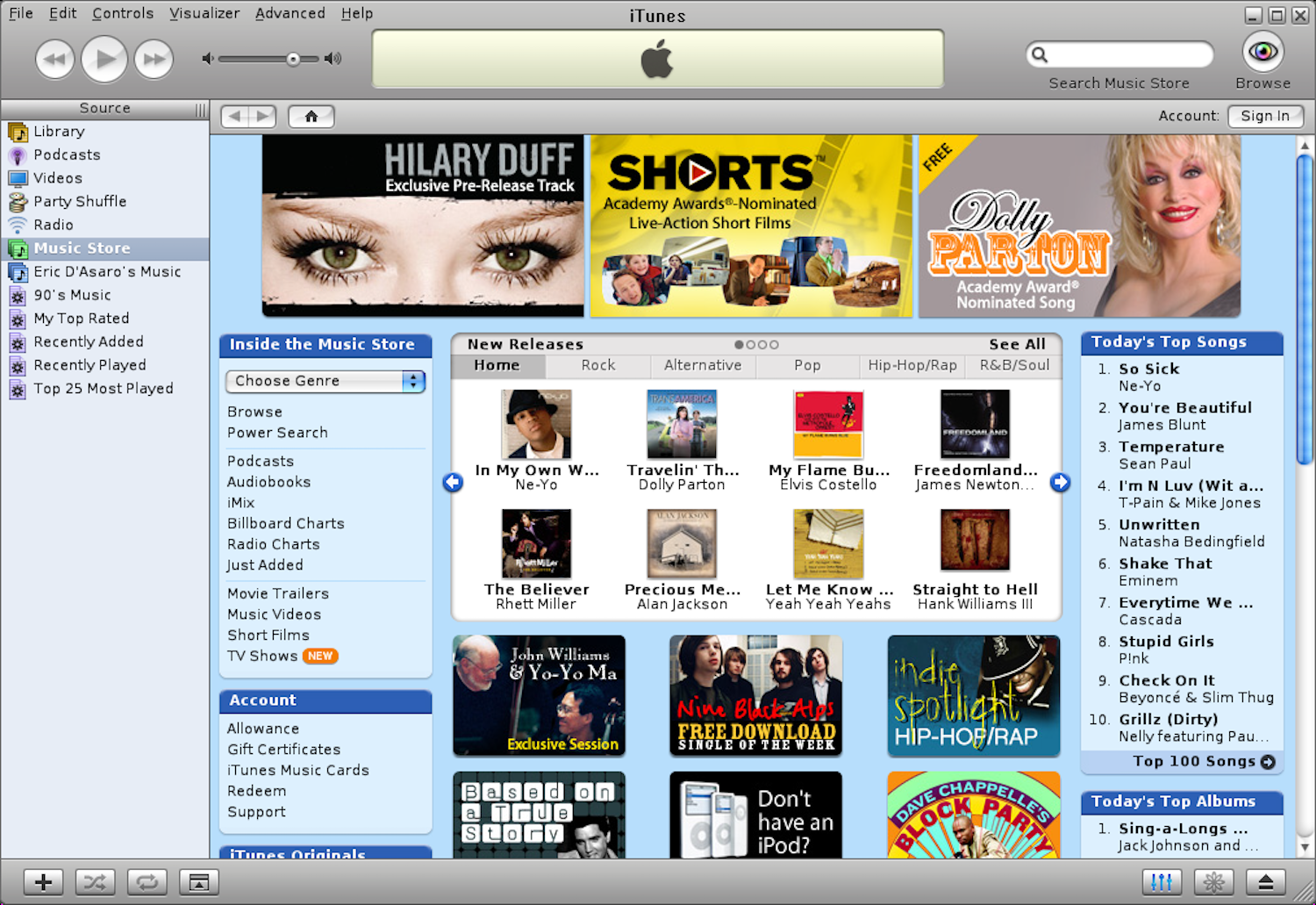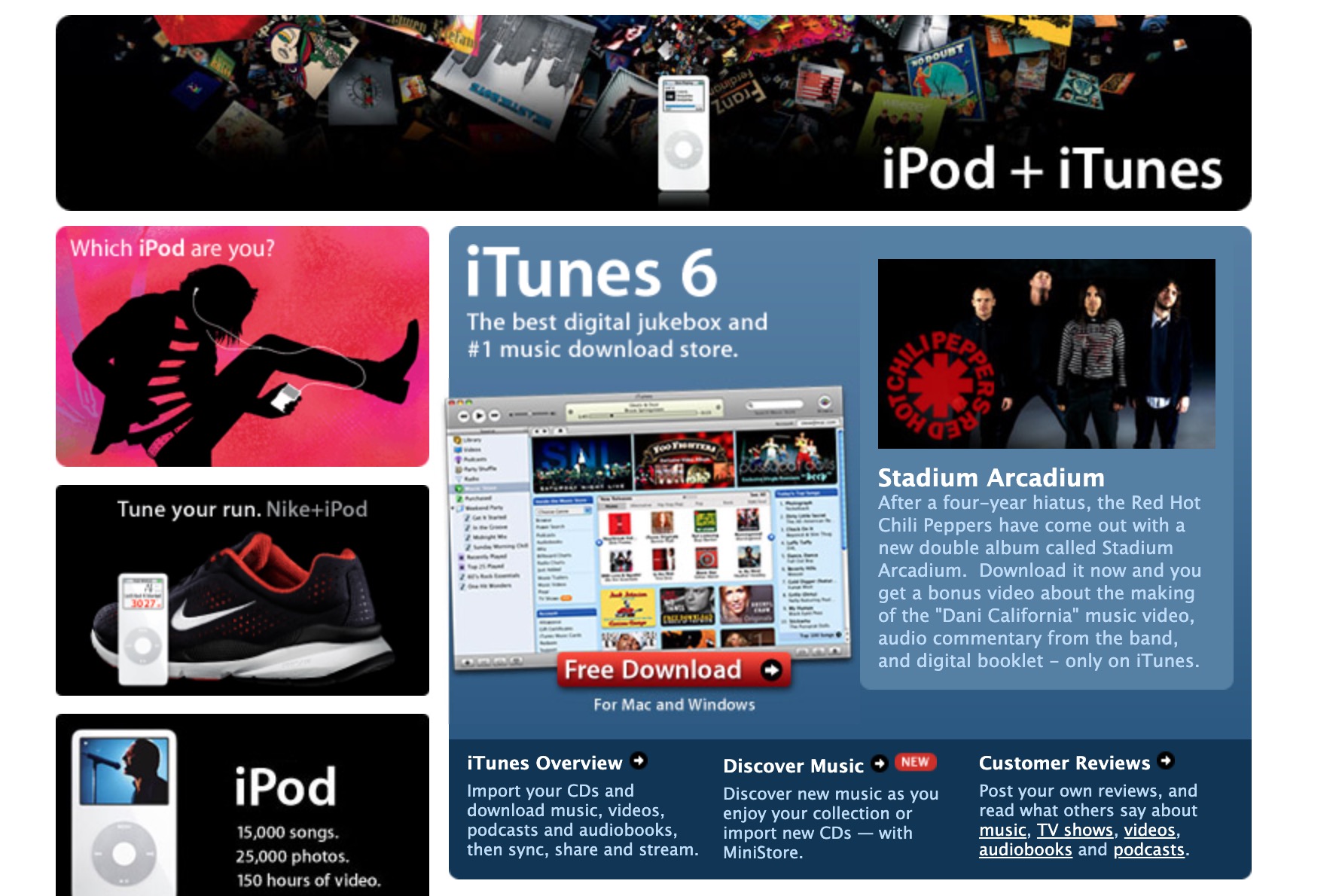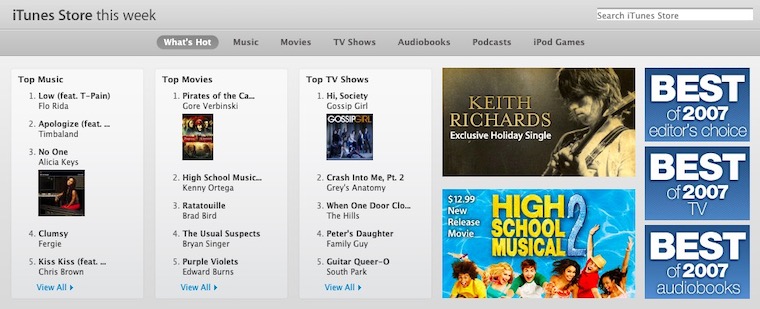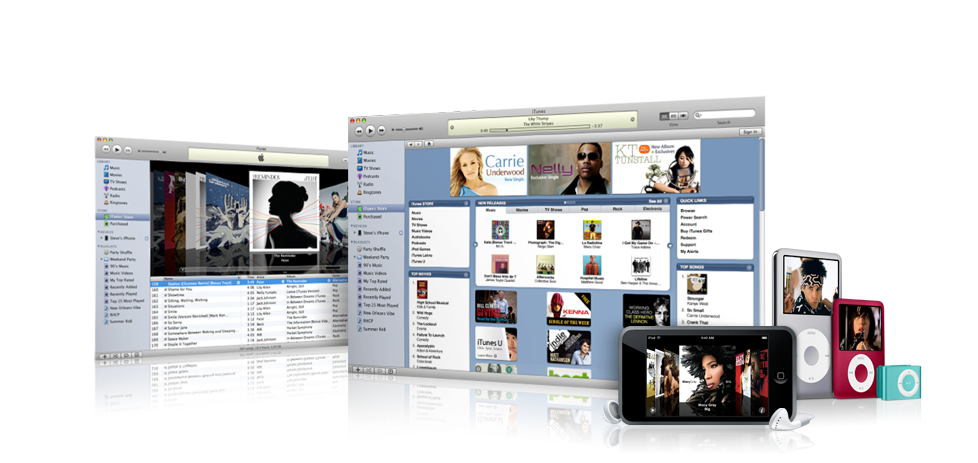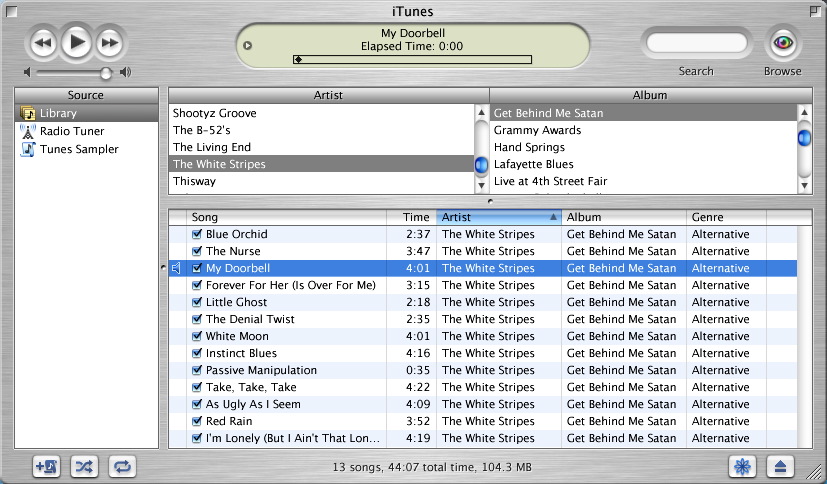Nowadays, most of us listen to music through various streaming services. Listening to music from traditional physical media is becoming less and less common, and on the go, in the vast majority of cases, we are content with listening via smartphones, tablets or computers. But for a long time the music industry was dominated by physical carriers, and it was very difficult to imagine that it could ever be otherwise.
It could be interest you

In today's installment of our regular "history" series, we look back at the moment when the iTunes Music Store became the surprising number two music retailer in the United States less than five years after its launch. The front row was occupied by the Walmart chain. In that relatively short time, over 4 billion songs have been sold on the iTunes Music Store to over 50 million customers. The rapid rise to the top positions was a huge success for Apple at the time, and at the same time heralded a revolutionary change in the way music was distributed.
It could be interest you
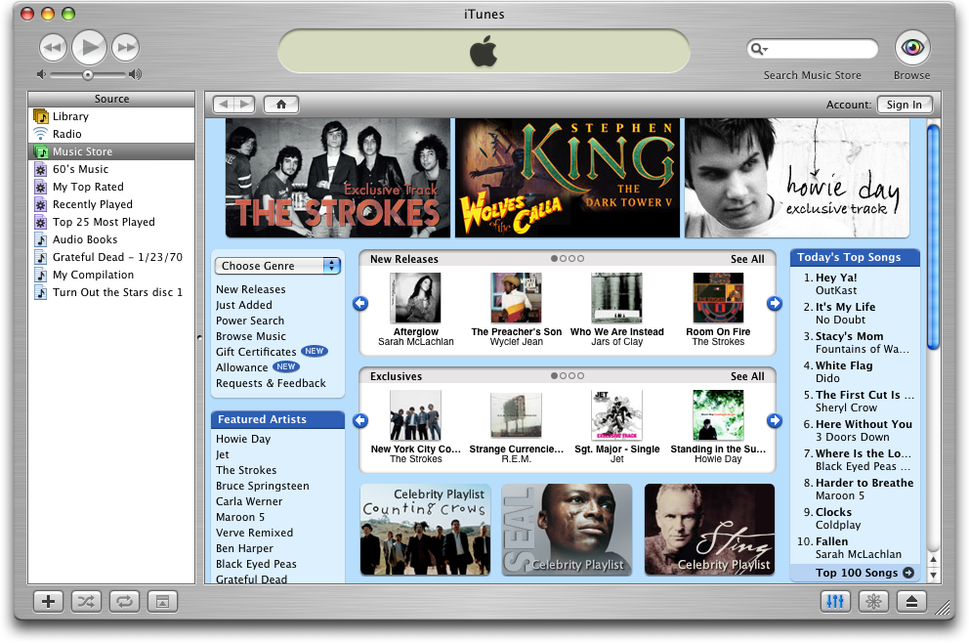
"We'd like to thank the more than 50 million music lovers who helped the iTunes Store reach this incredible milestone," Eddy Cue, then Apple's vice president of iTunes, said in a related press release. "We continue to add great new features, like iTunes Movie Rentals, to give our customers even more reasons to love iTunes," he added. The iTunes Music Store debuted on April 28, 2003. At the time of the service's launch, downloading digital music was synonymous with theft—piracy services like Napster were driving the massive illegal download trade and threatening the future of the music industry. But iTunes combined the possibility of convenient and fast music downloads from the Internet with legal payments for content, and the corresponding success did not take long.
Although iTunes still remained somewhat of an outsider, its rapid success reassured music industry executives. Along with the revolutionary iPod music player, Apple's ever-popular online store proved there was a new way to sell music that was fit for the digital age. The data, which ranked Apple second behind Walmart, comes from the MusicWatch survey by market research firm The NPD Group. Since many iTunes sales were made up of individual tracks, not albums, the company calculated the data by counting the CD as 12 individual tracks. In other words – the iTunes model has even affected the way the music industry calculates music sales, shifting the focus to songs rather than albums.
Apple's rise to the top among music retailers, on the other hand, wasn't a complete surprise to some. Practically from day one, it was clear that iTunes was going to be big. On December 15, 2003, Apple celebrated its 25 millionth download. In July of the following year, Apple sold the 100 millionth song. In the third quarter of 2005, Apple became one of the top ten music sellers in the United States. Still lagging behind Walmart, Best Buy, Circuit City and fellow tech company Amazon, iTunes eventually became the single largest music seller worldwide.

